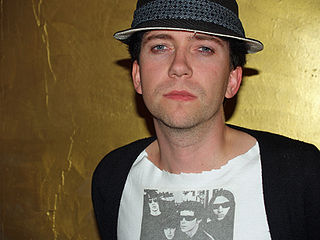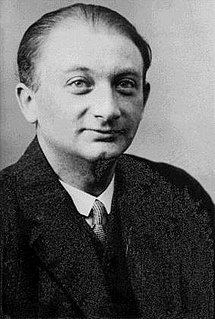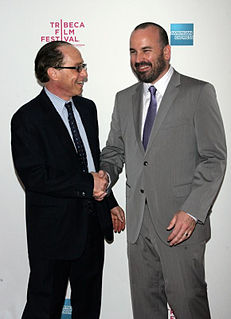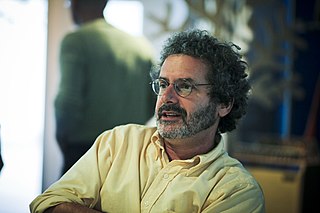A Quote by Will Self
The whole aesthetics of computers very much feeds into my OCD. They fill my head with obsessionalities and my actions become very repetitive. It seems quite inimical to the dreamy state out of which fiction comes which seems so much less causally repetitive than the way one works on computers.
Related Quotes
Everything is being run by computers. Everything is reliant on these computers working. We have become very reliant on Internet, on basic things like electricity, obviously, on computers working. And this really is something which creates completely new problems for us. We must have some way of continuing to work even if computers fail.
Right up till the 1980s, SF envisioned giant mainframe computers that ran everything remotely, that ingested huge amounts of information and regurgitated it in startling ways, and that behaved (or were programmed to behave) very much like human beings... Now we have 14-year-olds with more computing power on their desktops than existed in the entire world in 1960. But computers in fiction are still behaving in much the same way as they did in the Sixties. That's because in fiction [artificial intelligence] has to follow the laws of dramatic logic, just like human characters.
I don't really care about labels that much. I wouldn't really call our music retro. There are influences of things from the past, which there is in everything. I think we're quite a modern band, actually. We don't record with old equipment. We use computers and programmed drums. We don't use any guitar amplifiers. We're very much a modern band in the sense that we love computers and what they can do to music. I guess we're just good at a different sound.
At the age of 5, when I was in kindergarten, I often used to pass by the computer labs and see students doing work on computers. I realized that calculation, which would take us a long time to do, can be done in less than a second with the help of computers. So that is how my interest in computers began.
In our age of individualism, we see computers as ways through which we can express our individuality. But the truth is that the computers are really good at spotting the very opposite. The computers can see how similar we are, and they then have the ability to agglomerate us together into groups that have the same behaviours.
I do have quite a lot of sympathy for Fodor's picture of concepts as information-free atomic entities which get locked onto their referents causally, and to that extent they needn't involve anything much in the way of learning. But even so it seems perverse to call them 'innate'. Here we see again the oddity of treating 'not learned' as sufficient for innate.
Although the noise of the chattering clientele is much more significant than the topics of their chatter, it does finally constitute that type of social and indistinct expression that we refer to as rhubarb. The very particular volume in which people tell each other their news seems to generate all by itself that acoustic chiaroscuro, a sounding murk, in which every communication seems to lose its edges, truth projects the shadow of a lie, and a statement seems to resemble its opposite.
There is a popular cliché ... which says that you cannot get out of computers any more than you have put in..., that computers can only do exactly what you tell them to, and that therefore computers are never creative. This cliché is true only in a crashingly trivial sense, the same sense in which Shakespeare never wrote anything except what his first schoolteacher taught him to write-words.
I'm very interested in the way the Internet has changed teenage life. Obviously it's very different from when I grew up, when there weren't even answering machines, much less computers. I was telling my children this the other day, and the little one said, "Did you have electricity, Mom?" and I was like okay, enough, kid.
I have a son. He's 10 years old. He has computers. He is so good with these computers, it's unbelievable. The security aspect of cyber is very, very tough. And maybe it's hardly doable.But I will say, we are not doing the job we should be doing. But that's true throughout our whole governmental society.
I think people do look to writers to tell the truth in a way that nobody else quite will, not politicians or ministers or sociologists. A writer's job, is to, by way of fiction, somehow describe the way we live. And to me, this seems an important task, very worth doing, and I think also, to the reading public, it seems, even though they might not articulate it, it seems to them something worth doing also.



































